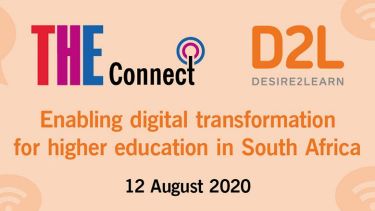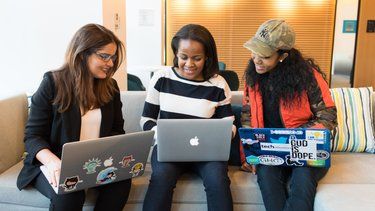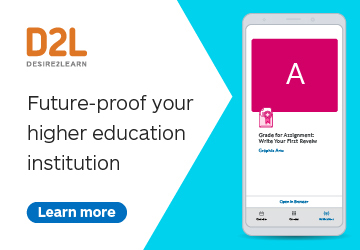Ahead of an upcoming Times Higher Education and D2L webinar, Israel Rosales found out more about technology solutions for South African higher education
On 12 August 2020, Times Higher Education will partner with D2L to host the webinar ”Enabling digital transformation in South Africa: staying locally and globally competitive in a new era of digital learning”.
Ahead of the session, Israel Rosales, D2L’s regional manager for Spain, Portugal and Africa, spoke to Lesley Vieler, director at Visions Consulting, a business management consultancy and D2L partner, to find out more about issues affecting the region.
How do you see the education landscape in South Africa changing due to the Covid-19 pandemic?
“At the beginning of the crisis, it was unclear how sustained the disruption would be. Universities closed ahead of the Easter break, thinking they would return after the initial 21-day lockdown. Of course, that didn’t happen, and since then it’s been a very ‘stop/start’ situation. Now, there is the very real possibility that this academic year will extend into 2021. That puts funding under pressure, as this year’s supported students will need help to finish their studies while a new wave of students will start next year.
“With students no longer in classrooms, Covid-19 accelerated the online learning agenda, making the use of learning platforms more strategic. Through technology-enabled learning, universities can make use of file sharing, video and other tools that complement classroom-based teaching while helping to put learning in the hands of students. In-demand skills from employers include critical thinking and the ability to interrogate information and be self-directed. Self-paced learning, together with the capability to push individual content to learners, can help to develop and enhance these skills.”
What challenges do students adapting to online learning face?
“One challenge is the cost of data. Access needs to be equal for all, but data is expensive in South Africa, plus not all students have access to computers at home. As learning adapts to the digital world, students mustn’t be left behind. That’s why learning platforms must be mobile-friendly, so that students can access content and stay in touch with their courses through their smart devices.
“Compatibility with older smartphones is important too, as is a consistent learning experience, regardless of device. With content available offline as well as online, the learning platform ensures students can still get what they need, even if they’re not connected at home or when they’re travelling. This is ideal to support a hybrid learning model which combines online learning with traditional tuition, ensuring students benefit from a continuous learning experience whether they’re in or out of the classroom.”
How does the learning platform support the faculty?
“In many ways. Some courses have very large student cohorts – perhaps a thousand students to a class. Through the use of intelligent agents, lecturers and tutors can stay in touch with students, scheduling messages that are automatically sent when certain events happen, or milestones are reached. This can include welcome messages, recognition for achievements, and prompts when deadlines are approaching. It’s important that lecturers and tutors feel connected to students and that they have good insight into how each learner is getting on, even when they’re not in front of them in class or in tutorials. Analytics on the learning platform shine a light on where students may be struggling or where they’re ahead of the course timetable, in which case additional material can be provided to help them reach their full potential.”
What advice would you give universities undergoing a digital transformation?
“To approach it from a change management perspective. This is so important because the transformation is about more than just technology, it’s about transitioning to a different way of delivering learning. Everyone needs to go on the journey for it to be successful and they’ll all have different starting points – early adopters might be raring to go while those less comfortable might need more support. Managing the change, communicating well – and often – addressing any concerns as they arise, is essential for a successful transformation.”
Visions Consulting partners with D2L to deliver virtual learning environments in South Africa. Why the partnership?
“At Visions, we are passionate about making a difference in people’s lives through technology, so the partnership with D2L, as a leading provider of learning management solutions, was a logical choice. Being local, we know the environment that South African universities operate in. This understanding, together with D2L’s expertise in learning solutions and the approach they take to understanding each organisation’s needs, supports institutions through the process.
“Universities have a range of stakeholders – students, lecturers, tutors, administrators, leaders, parents and more – each group has its own particular needs when it comes to a learning platform and we relish the opportunity to work with them to get the right result.”
Israel Rosales is D2L’s regional manager for Spain, Portugal and Africa. Israel collaborates with D2L partners across Europe and Africa to help higher education, K12 and corporate institutions to reach every learner.
For more information and to secure your place for the webinar “Enabling digital transformation in South Africa: staying locally and globally competitive in a new era of digital learning”, register here.






















